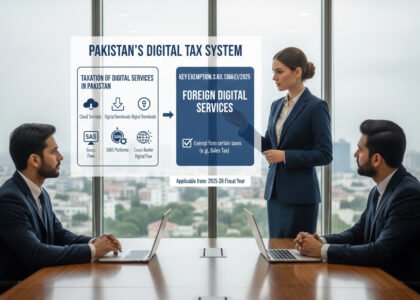Through the Finance Act 2025, the government has revised clause (b) of sub-section (3) of Section 130 of the Income Tax Ordinance, 2001, which defines the qualifications for Accountant Members of the Appellate Tribunal Inland Revenue (ATIR). This amendment now clearly recognizes both independent practice and employment experience of Chartered Accountants, provided they meet the 10-year threshold.
This change ensures that seasoned professionals with practical accounting experience—whether through independent practice or employment—are eligible for judicial roles in tax adjudication.
Text of the Amended Clause
Section 130(3)(b) now reads as:
“(b) has, for an aggregate period of not less than ten years, been –
(i) in practice as a chartered accountant, either individually or in a firm of chartered accountants, within the meaning of the Chartered Accountants Ordinance, 1961 (X of 1961); or
(ii) a chartered accountant, within the meaning of the Chartered Accountants Ordinance, 1961 (X of 1961), and has been in employment of a chartered accountant in practice as specified in sub-clause (i) above at least for a period of ten years.”
Key Highlights of the Amendment
Recognition of Employment in Practice
Previously, ambiguity existed about whether employment under a practicing Chartered Accountant counted toward the 10-year experience requirement. The revised clause clarifies and validates such experience.
Example: A Chartered Accountant who worked for 10 years in a CA firm without becoming a partner is now clearly eligible for appointment to the Appellate Tribunal.
Broadens the Pool for Appellate Tribunal Appointments
This amendment opens the door for:
Qualified professionals with longstanding employment in CA firms
Not just those with independent or partnership practice experience
Case Insight: A senior audit manager working under a partner for a decade now qualifies for consideration as an Accountant Member of ATIR.
Practical Implications
Enhances diversity in the Appellate Tribunal bench
Balances legal and practical accounting experience
Creates parity between practicing CAs and employed CAs
This change reflects a modern understanding of professional accounting careers, where significant expertise is often developed within firm employment structures.
FAQs – Section 130(3)(b) Amendment (Finance Act 2025)
What change has been made in Section 130(3)(b)?
It now allows CAs with 10 years of employment under a practicing CA to qualify as Accountant Members of the ATIR.Does this include salaried employees in CA firms?
Yes, provided the employer is a practicing Chartered Accountant under the Chartered Accountants Ordinance, 1961.Is partnership in a CA firm still required?
No. The amendment recognizes both individual practice and employment-based experience.Can a person combine practice and employment to complete 10 years?
The law speaks of either route individually, but as long as the aggregate is 10 years in qualifying roles, it may be acceptable.What is the Appellate Tribunal Inland Revenue (ATIR)?
It is the second-tier appellate authority in Pakistan’s income tax system after Commissioner (Appeals).Is this amendment retrospective?
It applies from the date of enactment of the Finance Act 2025 onward.Does this affect legal members of ATIR?
No, this amendment only concerns Accountant Members, not legal/judicial members.What if a CA has worked in industry, not a CA firm?
That experience does not count under this amendment unless it was under a CA in public practice.What’s the purpose of this change?
To broaden the eligibility pool and recognize skilled professionals from structured CA firm environments.Who determines final eligibility?
The Federal Government or relevant appointment authority per the Ordinance.






